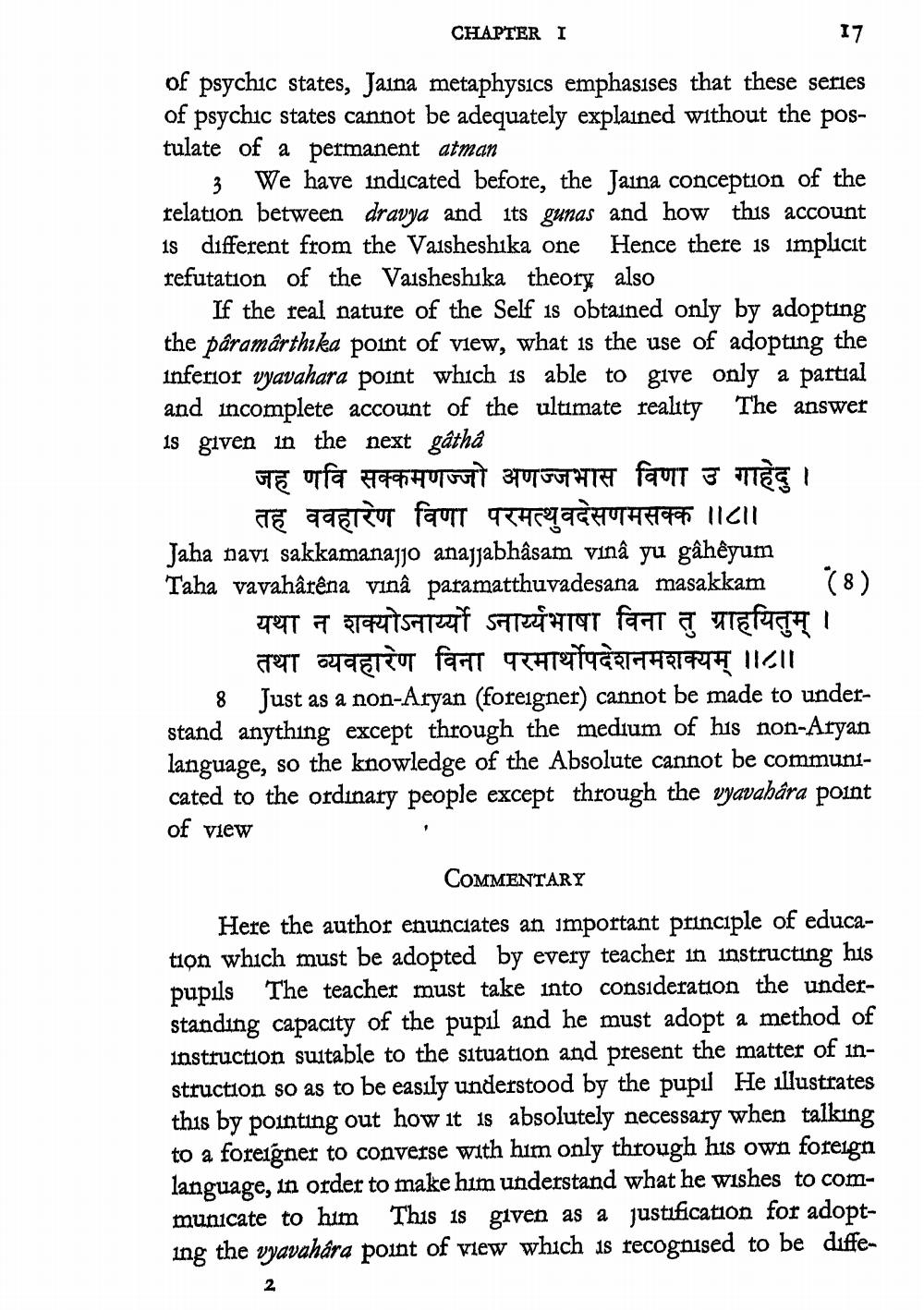________________
17
CHAPTER I of psychic states, Jaina metaphysics emphasises that these series of psychic states cannot be adequately explained without the postulate of a permanent atman
3. We have indicated before, the Jaina conception of the relation between dravya and its gunas and how this account 18 different from the Vaisheshika one Hence there is implicit refutation of the Vaisheshika theory also
If the real nature of the Self is obtained only by adopting the paramârthika point of view, what is the use of adopting the inferior vyavahara point which is able to give only a partial and incomplete account of the ultimate reality The answer is given in the next gâthâ
जह णवि सक्कमणज्जो अणज्जभास विणा उ गाहेदु ।
तह ववहारेण विणा परमत्थुवदेसणमसक्क ॥८॥ Jaha navı sakkamanajjo anajjabhâsam vinâ yu gâhêyum Taha vavahârêna vinâ paramatthuvadesana masakkam (8)
यथा न शक्योऽनार्यो ऽनार्यभाषा विना तु ग्राहयितुम् ।
तथा व्यवहारेण विना परमार्थोपदेशनमशक्यम् ॥८॥ 8 Just as a non-Aryan (foreigner) cannot be made to understand anything except through the medium of his non-Aryan language, so the knowledge of the Absolute cannot be communicated to the ordinary people except through the vyavahâra point of view
COMMENTARY Here the author enunciates an important principle of education which must be adopted by every teacher in instructing his pupils The teacher must take into consideration the understanding capacity of the pupil and he must adopt a method of instruction suitable to the situation and present the matter of instruction so as to be easily understood by the pupil He illustrates this by pointing out how it is absolutely necessary when talking to a foreigner to converse with him only through his own foreign language, in order to make him understand what he wishes to communicate to him This is given as a justification for adopting the vyavahára point of view which is recognised to be diffe




